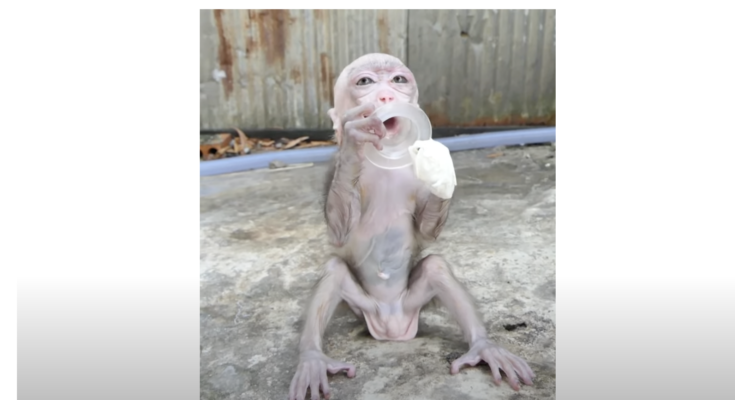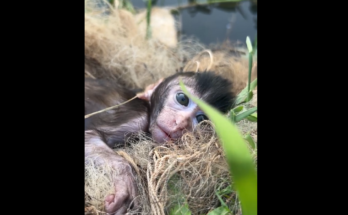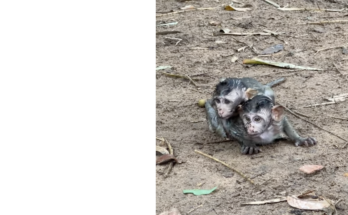In the intricate tapestry of the animal kingdom, the bond between a newborn monkey and its mother is both profound and essential. From the moment of birth, infant monkeys instinctively seek the warmth and nourishment of their mother’s milk, a vital component for their survival and development. This act of nursing not only provides essential nutrients but also fosters a deep emotional connection between mother and offspring.
Observations of infant pigtail monkeys (Macaca nemestrina) have shed light on their nursing behaviors. Studies indicate that while infants over one month old exhibit a strong preference for one of their mother’s nipples, younger infants display less selectivity. Notably, infants with lower birth weights may not develop a clear preference even after the first month, highlighting the nuances in nursing patterns among primates.
The quality of maternal milk plays a pivotal role in shaping an infant monkey’s behavior and temperament. Research involving rhesus macaque monkeys reveals that mothers with higher body weights and prior pregnancies produce more nutritious milk. This enriched milk serves as a signal to the infants, potentially programming their behavior and aiding in better coping mechanisms.
Tragically, not all infant monkeys have the privilege of maternal care. Orphaned baby monkeys, having lost their mothers due to various circumstances, face significant challenges. Organizations like Wildlife SOS have stepped in to provide care and compassion to these vulnerable infants. Upon rescue, these babies are often frightened, disoriented, and malnourished. Immediate priorities include ensuring they are fed, hydrated, and kept warm. To address their emotional needs, enrichments such as toys are introduced, offering comfort and aiding in their psychological recovery.
In certain primate species, the community plays a role in nurturing the young. For instance, golden snub-nosed monkeys have been observed practicing allomaternal nursing, where infants are nursed by females other than their biological mothers. This behavior, documented in over 87% of observed cases, underscores the communal approach to child-rearing in some primate societies.
The journey of an orphaned baby monkey is fraught with challenges, but with dedicated care and support, many can overcome their initial hardships. For example, at the Lilongwe Wildlife Centre, orphaned primates are given specialized care to ensure their well-being. Upon arrival, these infants are often frightened, disoriented, and malnourished. The immediate focus is on feeding, hydration, and warmth, laying the foundation for their recovery and eventual reintegration into the wild
In conclusion, the sight of a newborn baby monkey nursing is emblematic of the deep bonds and intricate behaviors that define primate societies. While maternal care is the cornerstone of an infant monkey’s early life, the adaptability and resilience of these creatures, coupled with the compassion of caregivers and communities, ensure that even those facing adversity have a fighting chance at survival and integration.



